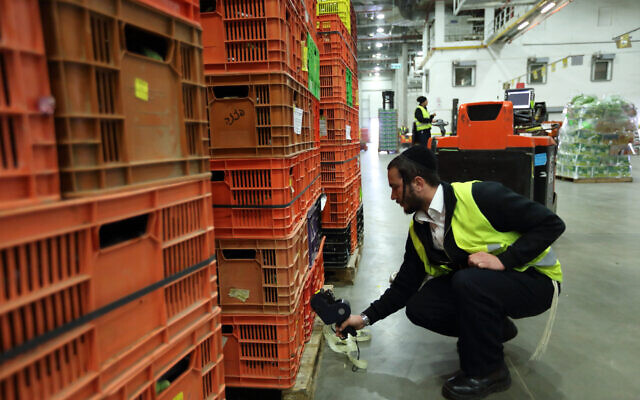High Court says Rabbinate must review exclusion of competitor’s kosher certification
Court rules in favor of a petition by the Tzohar rabbinical group against its exclusion from labeling imported goods
The High Court of Justice has ordered the Chief Rabbinate to review its exclusion of a competitor, the Tzohar rabbinical group, from certifying imported products as kosher.
This development, which emerged out of a hearing in Jerusalem on Wednesday, is the latest in a two-year court case launched by Tzohar, a nonprofit organization of Orthodox rabbis that has challenged the Rabbinate’s monopoly and stringent policies in multiple areas, including kosher certification.
“The Rabbinate agreed to review its stance on Tzohar’s kosher certification of imported products and give the court its answer about it in 30 days,” Rabbi David Stav, a founder of Tzohar, told The Times of Israel.
“Essentially, the Court gave the Rabbinate a warning to address its exclusion of Tzohar as a kosher certifier if it wants the court not to intervene and issue a ruling forcing the Rabbinate’s hand,” he said.
The Rabbinate in recent years approved several dozen certifiers of imported goods, Stav said. The Rabbinate delegated the certifiers, including several Haredi for-profit agencies, to issue kosher certificates that are recognized by the Rabbinate, which is the state’s organ responsible for regulating religious services for Jews.
But the Rabbinate has consistently excluded Tzohar from the list of recognized certifiers, citing in court hearings alleged failures by Tzohar rabbis. The Rabbinate named one example of a winery that allegedly had received retroactive certification for wine that had been produced seven years prior to the certification and without Tzohar’s supervision.
Tzohar has dismissed the allegations as false, calling them part of a political fight by the Rabbinate against the movement, which has been openly challenging the Rabbinate in court and elsewhere since its establishment in 1995.
In addition to kashrut certification, Tzohar has partnered with the ITIM nonprofit to challenge the Rabbinate’s former monopoly on conversions to Judaism and officiating at Jewish weddings.
“In the context of this struggle, the Rabbinate’s case against kashrut certification by Tzohar is unconvincing, and the hearing affirms this,” Stav said.
The court ordered the Rabbinate to pay for the legal expenses connected to the hearing.
If Tzohar is allowed to certify imported products, it will direct fees levied from producers for this service toward lowering the fees that local businesses pay to Tzohar for their kosher certification, Stav said. Those fees can reach $500 a month.
Tzohar began issuing local businesses supervision certificates several years ago as an alternative to the Rabbinate’s kosher certificates. This development also entailed a legal fight, which resulted in a 2017 High Court ruling making it permissible for businesses under Tzohar’s supervision to advertise this supervision, as long as the advertisement does not include the word “kosher,” “halachah,” Jewish Orthodox law, as well as “mehadrin” and “hashgahah,” Hebrew-language words that mean “extra strict” and “(kosher) supervision.”











